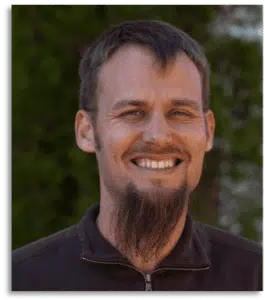Global Gates


Interview with Chris Clayman co-founder of Global Gates
Written by David Garrison – Mission Advisor for Church Planting
David is one of our fourteen Mission Advisors focused on assisting the Missio Nexus association with key insights and wisdom on specific topics and areas of interest. You can learn more about our Mission Advisors and their areas of focus by click here: Mission Advisors
Few challenges facing the Church today are more significant than the twin tasks of: 1) completing the Great Commission mandate to disciple the world’s least-evangelized peoples deep within what Jesus called “the ends of the earth” and missiologists have termed “the 10/40 Window,” and 2) engaging diaspora representatives of these same people groups who have now immigrated into our own cities, towns, and neighborhoods. Global Gates, a New York City-based ministry with work in 20 global gateway cities is tackling both challenges by reaching the world’s least-reached people groups through their immigrant populations in our own backyard.
Today I’m interviewing Chris Clayman, co-founder of Global Gates. Chris is also the author of the new book Superplan, a journey into God’s story.

David: Chris, tell us about Global Gates. What is this ministry and why did you found it?
Chris: Global Gates is a mission organization focused on spreading the gospel to, and through, unreached people groups in large cities. After researching the ethnic groups of Metro New York for several years (see www.unreachednewyork.com) and experiencing how naturally the gospel spread back and forth from West African Muslim-background friends in the city to their homeland, I knew I was witnessing a shift in missions where the frontiers of reaching many unreached people groups had extended to Western cities. These migration magnets like New York City, Toronto, etc., are places where evangelists and church planters can be conspicuous spreaders of Good News and members of unreached people groups can investigate the gospel more freely than their home countries because of the open exchange of ideas in pluralistic urban societies. Furthermore, these cities tend to attract “big daddies” and “big mommas” (as my African friends call them) who are culture shapers for their people throughout the world. A friend named Brad and I started Global Gates to capitalize on this space, given through migration and technology, for the spread of the gospel to the least-reached peoples and places of the world.
David: Chris, tell us about your new book Superplan, a journey into God’s story.
Chris: Most people learn best through stories. I felt compelled to write my story and the story of three Christians from a Muslim background to show the process of joining God in his larger work of redeeming all peoples. In evangelical Christianity, people often talk about inviting Jesus into their lives. While there’s nothing necessarily wrong with that, we often limit Jesus’s involvement in our lives to our lives—our preferences, our vocations, our strengths, our levels of comfort. Even missionaries can elevate calls to particular places or peoples above the more tumultuous calling to dynamic relationship with Christ, which might involve shifts in callings to particular peoples and places.

David: Chris, can you tell us a little about the state of unreached-people groups in North American cities today?
Chris: There was a time when North Americans were leading research on unreached people groups (UPGs) throughout the world but the region with the worst research in the world on UPGs was North America. Thankfully, lists of the most significant UPGs in North America are becoming more accurate through peoplegroups.info and the Global Gates UPG Matrix. This research is constantly being updated, but research creates awareness, and this awareness awakens a sense of responsibility in the North American church.
I am encouraged that more mission organizations and churches are deploying evangelists and church planters among Muslims, Buddhists, Sikhs, Hindus, and Jewish groups in North America. These efforts should not replace people going overseas to live in the least-reached places of the earth, but should be an additional component of a global strategy to reach the remaining UPGs. The most fruitful efforts in North American cities are coming through same-culture believers and missionaries who are integrating local evangelism and church planting with the spread of the gospel through global networks. It has been exciting to hear more stories in the last couple of years of members of UPGs coming to faith in North American cities and leading family members and friends to Christ in their homeland and other diaspora communities.
David: Chris, what does Global Gates have to do with churches in America today?
Chris: Most Christians in North America don’t realize the unprecedented opportunity they have to be on the frontlines of God’s mission. When I first became a missionary after graduating college, I studied cross-cultural missions for several months, went through various orientations for living in West Africa, learned an African language, and lived in a mud hut in a village with no electricity or running water with people who knew nothing about my culture, all to obtain the ability to share the gospel with an unreached people group. Now, there are people from that same ethnic group who have paid their way to America, studied and learned English, and are integrating into American life, bumping into Christians whether they know it or not. Unreached people groups (UPGs) are now accessible in every region of North America.
In 1914, Edward Judson, son of pioneer missionary Adoniram Judson, said that Christians of America used to think of foreigners “as a menace, but have learned to regard them as an opportunity.” I’m afraid many Christians today view Muslims, Hindus, and other foreigners in North America as more of a menace than an opportunity. The worldview in the church sometimes reflects nationalism more than the biblical injunction to love one’s enemy (Mt. 5:44) and welcome foreigners (Lev. 19:34). There are political issues that answer a different set of questions, but Global Gates wants to help the church with the biblical issue of how we should treat our neighbor. Global Gates, and an increasing number of churches and organizations, are providing opportunities to educate, train, and influence the church in loving their new neighbors.
David: Chris, tell us about Global Gates’ efforts in church planting.
Chris: Because we know the Lord has instructed us to make disciples, and because he uses the church to disciple people, we know we need to start churches that are best equipped to disciple members of UPGs. Christians who come out of Islam or another religion have a unique set of questions that need to be answered by those familiar with their worldview. No one understands that worldview better than people who come from the same culture.
Therefore, we are seeking to lead people to Christ, disciple them, and assist them as churches are formed and they are raised up as church leaders. Our missionaries are a mix of cross-cultural workers who are just beginning to learn the culture and language of an unreached people group (UPG), cross-cultural workers who have language and cultural expertise because of time abroad, and same-culture Christians from the UPG they are seeking to reach. All of them, however, are working toward the main goal of multiplying disciples and churches. We seek to start churches that are structured in a biblical way that can reproduce easily into people’s homelands. If everyone from a UPG who came to faith in North America went to churches that spoke English, had large buildings, and were structured in a Western way, they would not be able to reproduce themselves with multiplying disciples and churches through their global networks.
Praise God, we are seeing the first churches started in New York City that primarily consist of Christians from a Muslim-background! We have also been involved in spreading the gospel among Rohingya Muslim refugees in Bangladesh, whom we originally came into contact with in the United States. We have seen a multiplication of disciples among the Rohingya over the last few months and are praying and working toward this initiative developing into a church planting movement.
David: How can churches partner with Global Gates to fulfill the Great Commission?
Chris: There are a number of opportunities available on our website at globalgates.info/get-involved that feature outlets such as giving financially, participating in short-term trips, prayer calls, joining us long-term, and volunteering from home. I also provide a list of “Next Steps” opportunities for joining God’s “Superplan” at www.thesuperplan.com.
Above all, we simply encourage the church to view the people around them through the larger story of God’s Superplan. Who does God want us to love? Welcome? Befriend? Share the gospel with? Those efforts take intentional choices to step into other people’s worlds so that they and their people will have more of an opportunity to hear the hope we have in Christ. As a recent convert from Senegal said to me, “Jesus is the hope for Muslims. He is the hope for Africa. My people have been blinded. We have to let them know.”




